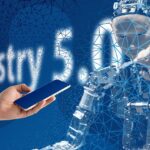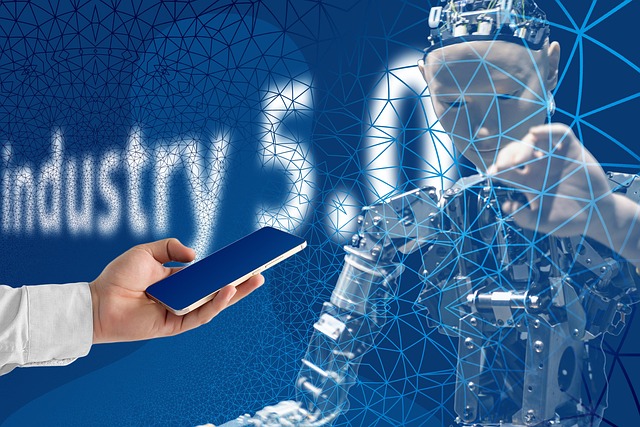# Navigating the AI Landscape: Understanding Its Transformative Impact on Society and Industries
Artificial Intelligence (AI) has emerged as one of the most pivotal technologies of the 21st century, reshaping industries and influencing societal norms. As organizations and individuals alike grapple with the implications of this innovation, it becomes essential to understand AI’s transformative impact across various sectors and its broader societal consequences.
## The Evolution of AI: A Brief Overview
To appreciate the current landscape of AI, one must first consider its historical context. The concept of artificial intelligence dates back to the mid-20th century, with early pioneers like Alan Turing and John McCarthy laying the groundwork for what would become a revolutionary field. Initially characterized by rule-based systems and expert programs, AI has evolved dramatically over the decades. The advent of machine learning and deep learning in the 21st century has propelled AI into a new era, enabling machines to learn from vast amounts of data and improve their performance autonomously.
Moreover, the proliferation of computational power and the availability of big data have catalyzed this evolution. As businesses and researchers harness these resources, AI systems have become increasingly sophisticated, capable of performing tasks ranging from natural language processing to image recognition. This rapid advancement has not only enhanced operational efficiencies but has also opened the door to innovative applications across various domains, including healthcare, finance, and transportation.
## Transformative Impact on Industries
When examining the influence of AI on specific industries, one cannot overlook its profound effects on healthcare. AI technologies are revolutionizing diagnostics, treatment planning, and patient care. For instance, machine learning algorithms can analyze medical images with remarkable accuracy, assisting radiologists in identifying conditions such as tumors at an early stage. Furthermore, predictive analytics powered by AI can help healthcare providers anticipate patient needs, leading to more personalized and effective treatment plans.
In the realm of finance, AI is redefining risk assessment and fraud detection. Financial institutions increasingly rely on AI algorithms to analyze transaction patterns and detect anomalies that may indicate fraudulent activity. By automating these processes, banks can respond to potential threats in real-time, safeguarding assets and enhancing customer trust. In addition to fraud detection, AI-driven robo-advisors are democratizing investment management, providing tailored financial advice to individuals who may not have had access to such services previously.
Transportation is another sector experiencing significant transformation due to AI. The development of autonomous vehicles promises to change how people and goods move around urban environments. Companies like Tesla and Waymo are at the forefront of this innovation, utilizing AI to navigate complex road systems safely. Additionally, AI is optimizing logistics and supply chain management, enabling businesses to streamline operations and reduce costs through predictive analytics and real-time data processing.
## Societal Implications of AI
Beyond its impact on industries, AI presents a range of societal implications that warrant careful consideration. One of the most pressing concerns is the potential for job displacement. As AI systems automate tasks traditionally performed by humans, there is a growing fear of widespread unemployment, particularly in sectors such as manufacturing and customer service. While some argue that AI will create new job opportunities, the transition may not be seamless, and workers may require significant reskilling to adapt to the changing job landscape.
In addition to employment concerns, ethical considerations surrounding AI deployment are paramount. Issues such as algorithmic bias and data privacy have garnered significant attention. AI systems trained on biased data can perpetuate and even exacerbate existing inequalities, leading to discriminatory outcomes in areas such as hiring and law enforcement. Consequently, organizations must prioritize fairness and transparency in their AI initiatives, ensuring that their technologies do not reinforce societal biases.
Furthermore, the integration of AI into daily life raises questions about privacy and surveillance. As AI technologies become more pervasive, the potential for misuse by governments and corporations increases. The balance between leveraging AI for societal benefits and safeguarding individual rights is delicate and requires ongoing dialogue among stakeholders, including policymakers, technologists, and the public.
## Conclusion: Charting a Responsible Path Forward
Navigating the AI landscape necessitates a comprehensive understanding of its transformative impact on society and industries. As AI continues to evolve, its potential to enhance productivity and improve quality of life is immense. However, with these benefits come significant challenges that must be addressed proactively.
Organizations and governments must collaborate to establish ethical guidelines and regulatory frameworks that promote responsible AI development and deployment. By fostering an environment of accountability and transparency, stakeholders can work together to harness the power of AI while mitigating its risks.
In conclusion, the journey through the AI landscape is just beginning. As we move forward, a collective commitment to understanding and addressing the multifaceted implications of AI will be crucial in shaping a future where technology serves humanity’s best interests. By embracing innovation while prioritizing ethical considerations, society can navigate the complexities of AI and unlock its full potential for good.











